Ferdinand Adimefe is a creative entrepreneur, intellectual buff, and a passionate lover of God. In this interview with OnBecomingAMan.com, Ferdy shares a lot about masculinity, faith, family, fatherhood, and his most recent foray into ministry via The Tribe Lagos, a new approach to church targeted at capturing the hearts of the unchurched. Read and enjoy the full interview below!
Please tell us about yourself – profession, education, growing up, etc.
I am a husband and father, roles which I consider very important. I have had several professions in the last decade; I started out as a brand strategist with an advertising agency just after my youth service program after which I went to obtain my master’s degree in media and communications. I took a job as a brand and communications manager for an oil and gas company, did that for about 5 years and ventured into entrepreneurship.
Presently, I am driving Imaginarium Creative Group, which is pioneering creative technology, strong on ideation, digitalization, data analysis, mobile marketing, value added services and product development. One of our young companies, Imaginaire is a brand and digital marketing agency as well. Besides all of these, I have a passion for film and writing. I have a published book called Pulse, which has also been adapted into a stage play. I have staged quite a few Broadway-style theatre shows in the last five years. I am currently working on an animation film project with an exciting team of young people. In my opinion, I think film and theatre, as art, can be used to drive social constructivism and citizen enlightenment. Aside this, I pastor a gospel expression called The Tribe Lagos situated in Lekki, Lagos.
If you reflect on your journey first as a full-time employee and then as a full-time entrepreneur, what are the most notable pros and cons for each side of the coin? What could you have done differently if you were to d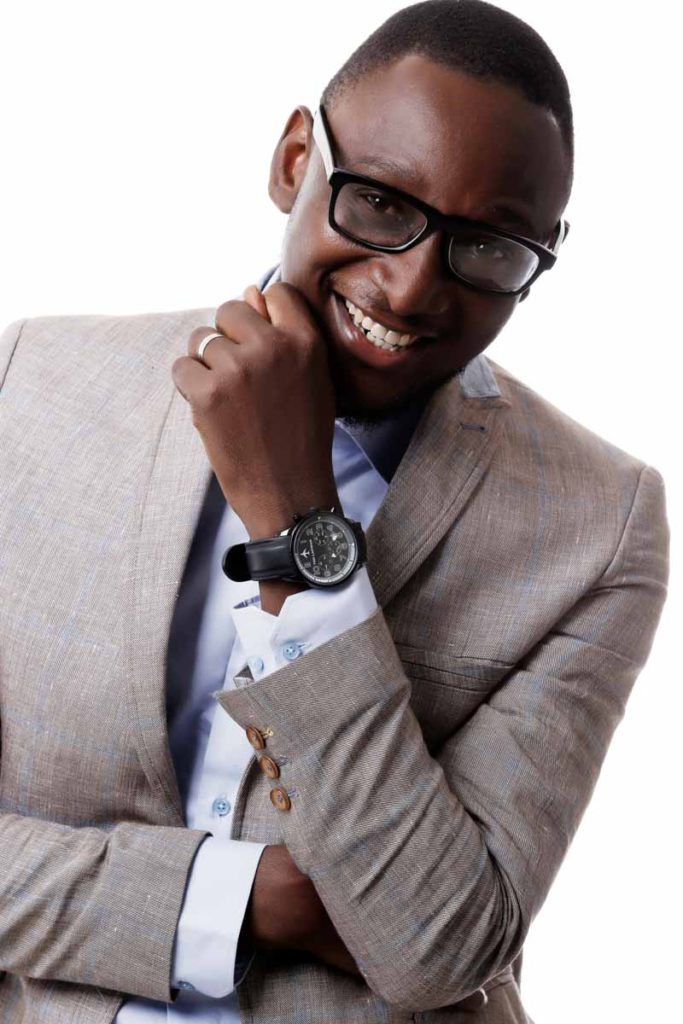 ecide on leaving a cozy job for building your own business?
ecide on leaving a cozy job for building your own business?
They are two different realities. As a staff, I never worried about money; at the end of the month I got an alert and that settled it. However, as an entrepreneur, towards the end of the month I have to figure out how people get paid. The entrepreneur’s reality is that you have good days and not-so-good days. Entrepreneurship can seem like an extreme sport; you do have infinite possibilities to explore and pursue opportunities that you consider more rewarding and fulfilling.
Everyone who is celebrated today for building a company often had to take that leap; so, it is not a question of whether you should take the leap, but when? When my “when” came, I had to make a move. I had become exceedingly dissatisfied with my job and wasn’t looking forward to anything. I wanted to do something with my full (artistic) expression and be part of something that could task all of me. So, I just made that move.
One major challenge for Nigerian entrepreneurs is that we often get caught in the grip of culture. We get caught up in the label of titles, forgetting that we have work to do. Entrepreneurship shouldn’t be anything that is decorated, you must grind! I always advocate for lean entrepreneurship. Bigger is not always better. Starting out doesn’t mean you must already have everything you want; securing a loan too early can be a huge distraction. Most times we spend the money on trivialities that cater to our ego, maybe a big office space – before you even know whether you need them.
If you have a job, but you aspire to be an entrepreneur, I think, one should make the transition gradual. You could start by setting up a website, incorporating your company, and/or building a portfolio of what you intend to put in the market. Entrepreneurship is about value proposition. If you do not have value to offer, you are not going to get the market. Ask yourself, “What need am I going to meet in the market? What is that problem I intend to solve?” Don’t just jump into entrepreneurship because someone else is doing it, or you just feel like doing it.
Entrepreneurship requires a lot of sacrifice, so you must be able to stay and delay gratification; you must be able to think of your company and your people before yourself. Entrepreneurship is like a special relationship that you must nurture. The first few years require intense sacrifice and grinding to stay on course. Eventually, your business can, in turn, nourish you.
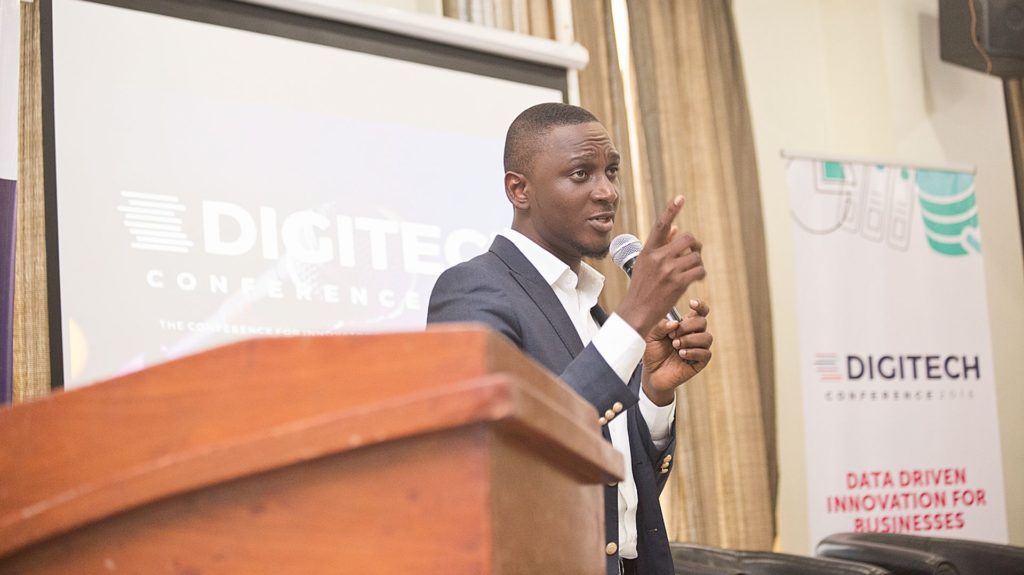 You have been involved in several projects tied to leadership, community service, and youth development. Why do you get involved in such projects?
You have been involved in several projects tied to leadership, community service, and youth development. Why do you get involved in such projects?
Early on in life I caught a sense of what it meant to be a citizen. I think it was from my grandmother. She was in the Red Cross well into her 70s. My siblings, cousins and I grew up having a healthy sense of social consciousness and civic participation. I see my involvement and efforts in volunteering for credible platforms as part of my rites of passage of some sort; it is both an education in and of itself as well as a personal development opportunity. I got involved with GOTNI, “Rubbing Minds” with The Future Project, interviewing people on TV and as a news analyst on Smooth FM, they are not paid jobs, but are part of how I my developed myself.
Our leadership abilities are forged in the furnace of social conflict, where we compete for superior ideas amongst our peers, process contradictions, forced to question our biases, unpack our prejudices, manage projects and teams, source for resources, harness potentials and skills to achieve a goal. There are people looking for something to belong to, to be part of something bigger than themselves, to build, and if you can give them something they can identify with, they can support you and help you build it.
I curated a project called “Creative Nigeria Project” for about 5 years, with a keen focus on fast tracking the growth of the Nigerian economy. The Creative Nigeria Project involved staging plays because we wanted to use theatre as a tool for social constructivism – to drive education and inspire Nigerians to rise and better understand the concept of nation building. We must see Nigeria before we begin to see the divides.
It is part of my claim to having a voice; part of my pain is that governments have not been able to pay attention to the creative sector. We have failed to see that with the right policies, institutions and programs it would significantly reduce our high rate of unemployment. A lot more people are into photography, fashion, music, etc.; and are succeeding despite the absence of the right policies, structures and interventions.
I am politically conscious. I try to keep an eye on our political trajectory. I try to see what policies can work; what has worked in other parts of the world. What we can adapt and adopt into our country to make it work. I still feel very strongly that we need a lot of people with the same kind of thinking to come together and start the process of building what will become a great Nigeria; we don’t have that yet.
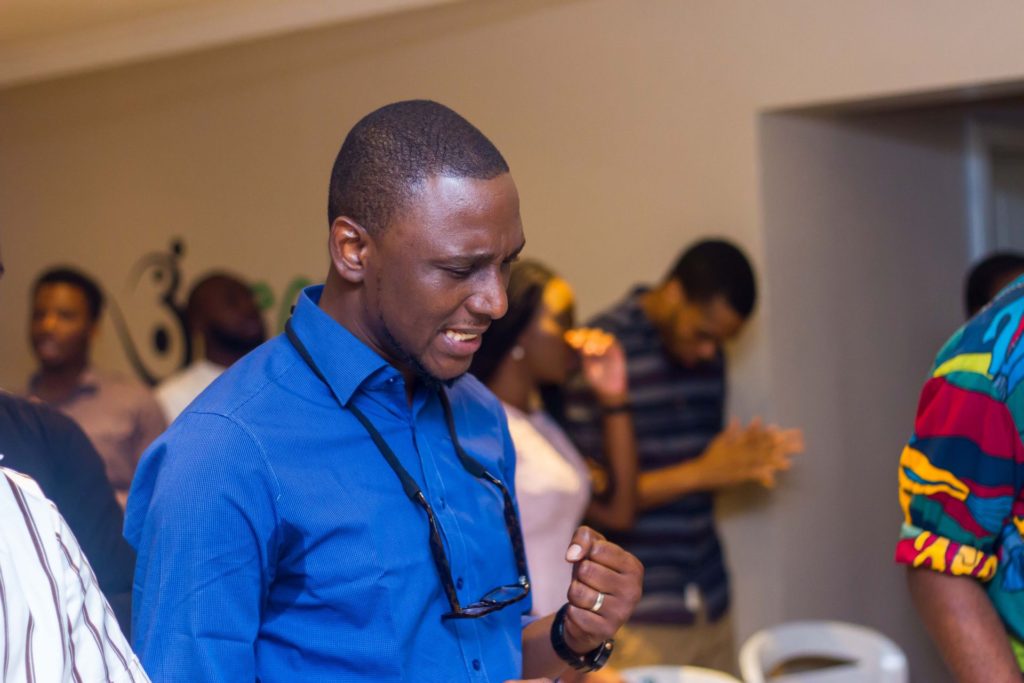 What role does Faith/walk with God play in the types of project you get involved in?
What role does Faith/walk with God play in the types of project you get involved in?
My faith is the essence of who I am and not just a part of me. I hold the belief that we are salt and light to our world. We bring order to chaos, beauty to ugliness. I believe anyone who will come in and bring about drastic change in this country must have benefited immensely from a reformation process of some sort and only faith can alter a man at that level. Only those who are reformed can drive transformation in a system.
Please share with us any new or key projects you are currently working on, especially those relating to young men?
We are building a new gospel movement called “The Tribe Lagos”. The TRIBE is a new gospel movement, a non-traditional model of church. What is central to our faith is Christ and what we want to do with The TRIBE is to take the God-centered message of Christ to our generation. Men are an essential part of this movement. We are planning a series of programs for men; this is important because the society fails if the man fails. Having the right father figure in a young man’s life often provides direction in life. It is important, in the wake of the different views about masculinity, that we revisit God’s patterns and purpose for creating men.
Our men are still growing up with a broken template that gives them an exaggerated sense of self importance and sometimes lesser opinion of women. We need to help guys get things right; it is an essential part of our movement and conversations.
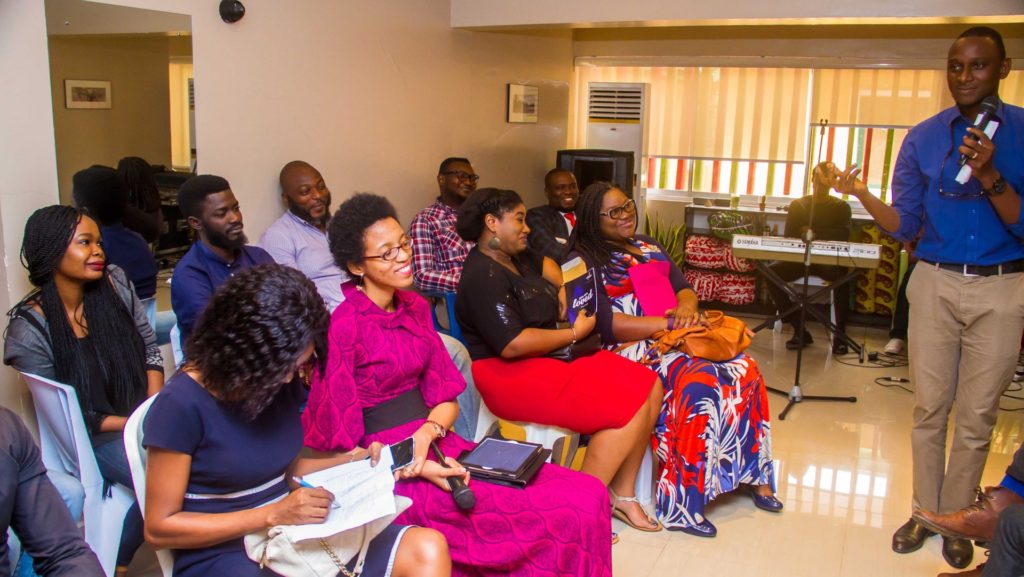
 What is the role of a mentor in the life of a young man? How would you describe your experience both as a mentor to many and a mentee of older men?
What is the role of a mentor in the life of a young man? How would you describe your experience both as a mentor to many and a mentee of older men?
A mentor is an invaluable asset. You can’t go through life alone; you need to climb on the shoulders of giants who have gone ahead of you. I am also deliberate about my choice of mentors; older people I really admire. This year, part of my plans is to see that I deliberately go after them and, regardless of their busy schedules, to have times where they can help me work through some of the things I am working on. I recommend having a mentor. I do have younger people who look up to me as a mentor; I do my best to keep up the relationship with them, to see how I can help shape their thinking some more and help them clarify their priorities.
What are your thoughts on discipleship in the Christian Faith, particularly for young men? Are we losing more men today who otherwise should be leading their families in the way of the Lord and setting the examples for others to follow?
I think we are losing more men, and discipleship is not something we have completely figured how to drive to a full conclusion. Discipleship must be more holistic than that. It should come along with theology, psychology and biology – a lot of those things must come into the mix because culturally, we must deconstruct many psychological roadblocks. In biology, we must help men realize “you are not your libido.” You must rein it in.
Discipleship is a journey, not a 3- month course! It lasts through one’s lifetime and the greatest model that every man should emulate is Christ.
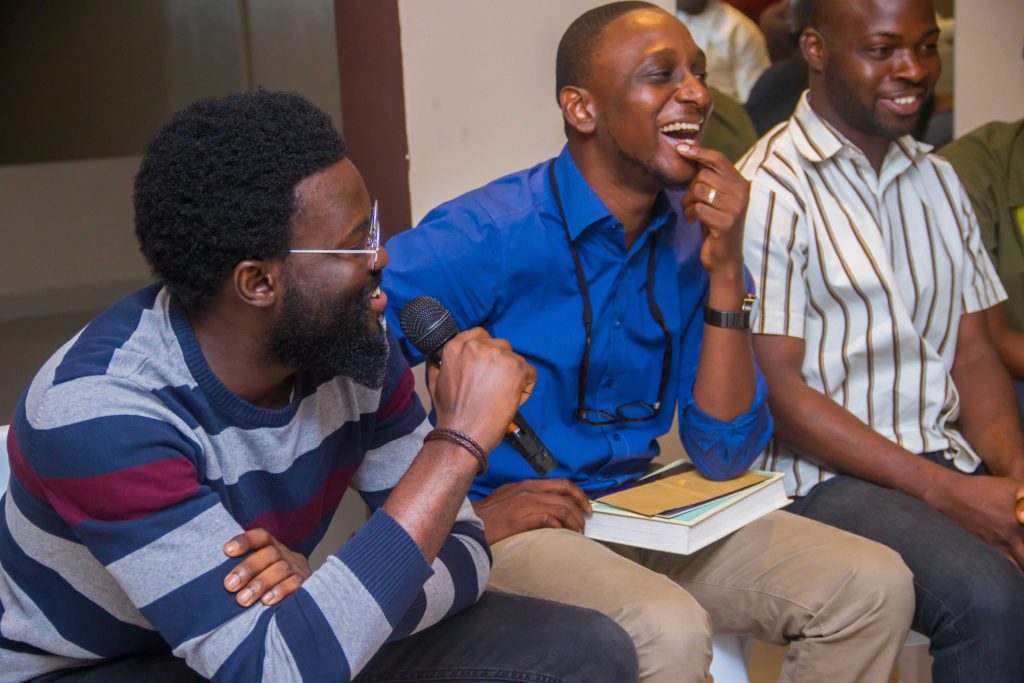 How would you describe your experience so far as a husband and father? How does it feel recalling when you first saw your son and the process it has taken to get to where he is now?
How would you describe your experience so far as a husband and father? How does it feel recalling when you first saw your son and the process it has taken to get to where he is now?
He is 3 in May, so he is still young. Being a husband, and now a father, has been one of the most exciting experiences of my life. Just having someone learn from me, look at me, and try to make sense of the world around him from everything that I do or say, in a way, has helped me become more cautious of what I watch/see, say, and do.
Since he came into our lives, myself and Lily, it has been an interesting journey.
If you could solve one single problem in the world right now, what would that be; why; and, what would be your solution?
I think ignorance is one major plague in our world today. People have outsourced their brains to institutions and leaders rather than think for themselves. We need to teach our children the art of thinking and not just what they should think about. We need to reform citizenship education and raise a generation of people who are in love with our country and can boldly and proudly identify themselves as Nigerians.
What else should we be expecting from you in 2017?
In 2017 my time is divided between the Tribe Lagos and Imaginarium.
At the Tribe Lagos, we are raising a community of people who are passionate about God, deeply rooted in their sense of identity in Christ, and who have an accurate understanding of how the gift of imagination and creativity can be used in advancing the gospel today. We are big on culture and renewal, so we want to bring in a lot of theatre; and have worship songs that can capture imagination and reveal God to our generation. The Tribe is an exciting journey for me. For Imaginarium, we are growing to become a group, setting up a board, and soon, we will be having new staffs join us. For me, it is not just about running a company, it is taking that company and translating it into a cultural icon.
It’s a really exciting year for me to be at this point driving two passion points: my passion for God with The Tribe and my passion for creative technology with Imaginarium.
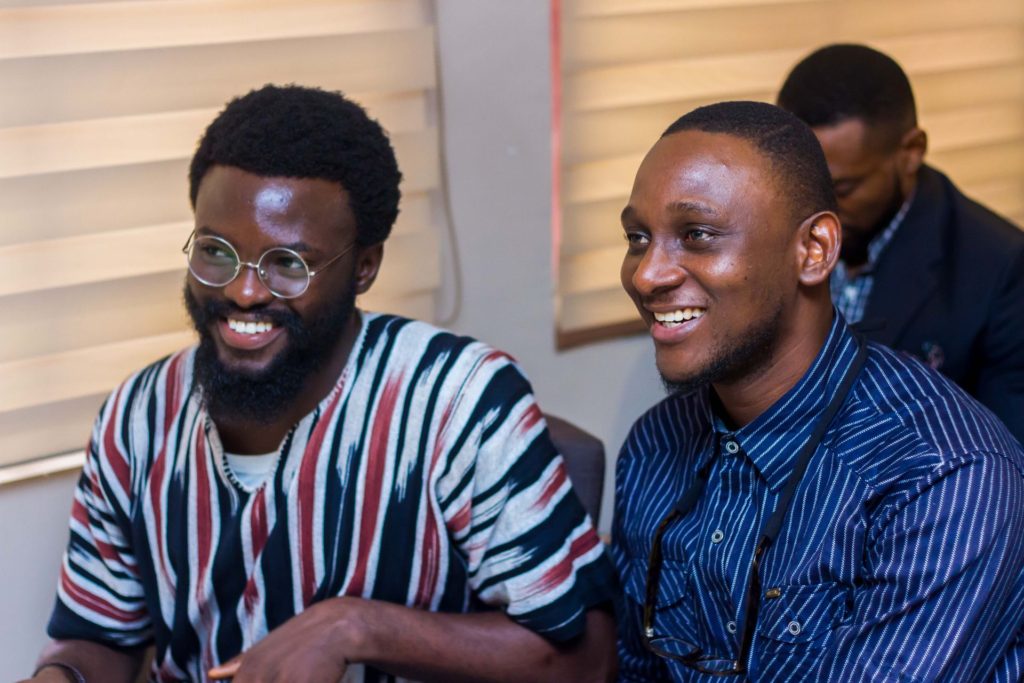 Which is your favorite bible verse and why? What is your favorite inspirational quote and why?
Which is your favorite bible verse and why? What is your favorite inspirational quote and why?
My favorite bible verse is Galatians 5:21: “It is no longer I who lives, but Christ lives in me.” Paul implies here that God’s goal is the incarnation of Christ in every man. My favorite quote changes over time, but one that has stuck with me is “Our problem is not the unanswered questions, but the unquestioned answers out there.” [Attributed to Timothy Keller, Founder of Redeemer Presbyterian Church and City to City, New York, USA, tweeted via @timkellernyc on 7 Dec 2015]. It is important for us to learn to question the answers we have received before we got here, so we do not accept just anything and live life on assumptions.
Any other additional words of advice or encouragement for young men.
Live life as an exciting adventure, not as a path to safety and security – that’s not just why we are here! Go after your dreams with everything that you have.


1 comment
This guy is all shades of deep plus his responses read like a textbook! I screenedgrabbed a few – his thoughts on leadership, which btw was epic, the one problem he would love to solve, and his elaboration of his fave text.
Amazing! I pray for more energy and passion for his two ‘loves.’
Gbenga you are doing an amazing job – spotlighting men who are not just doing great things in their careers but more importantly godly men! Examples that our men need. More grace for this!